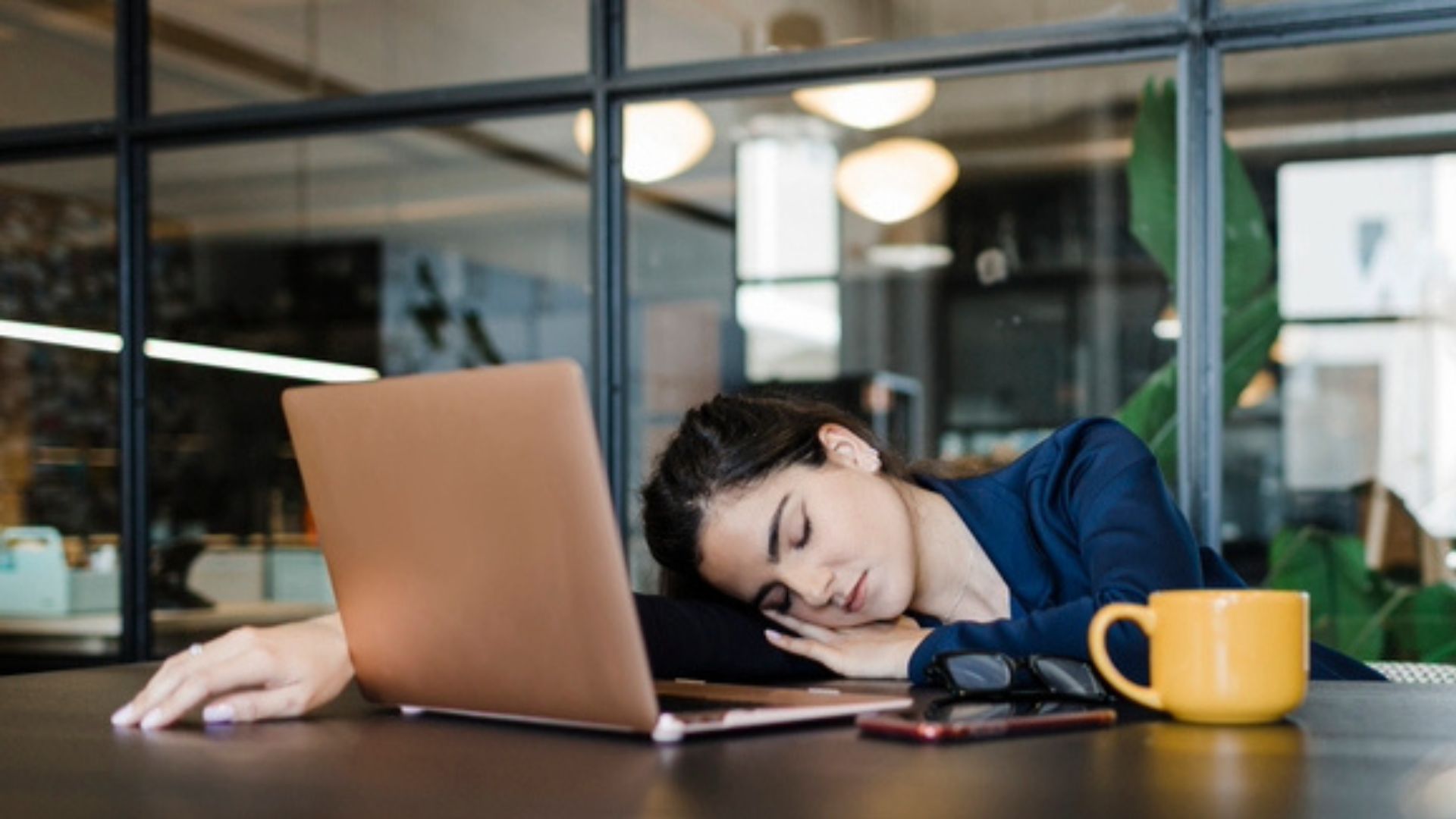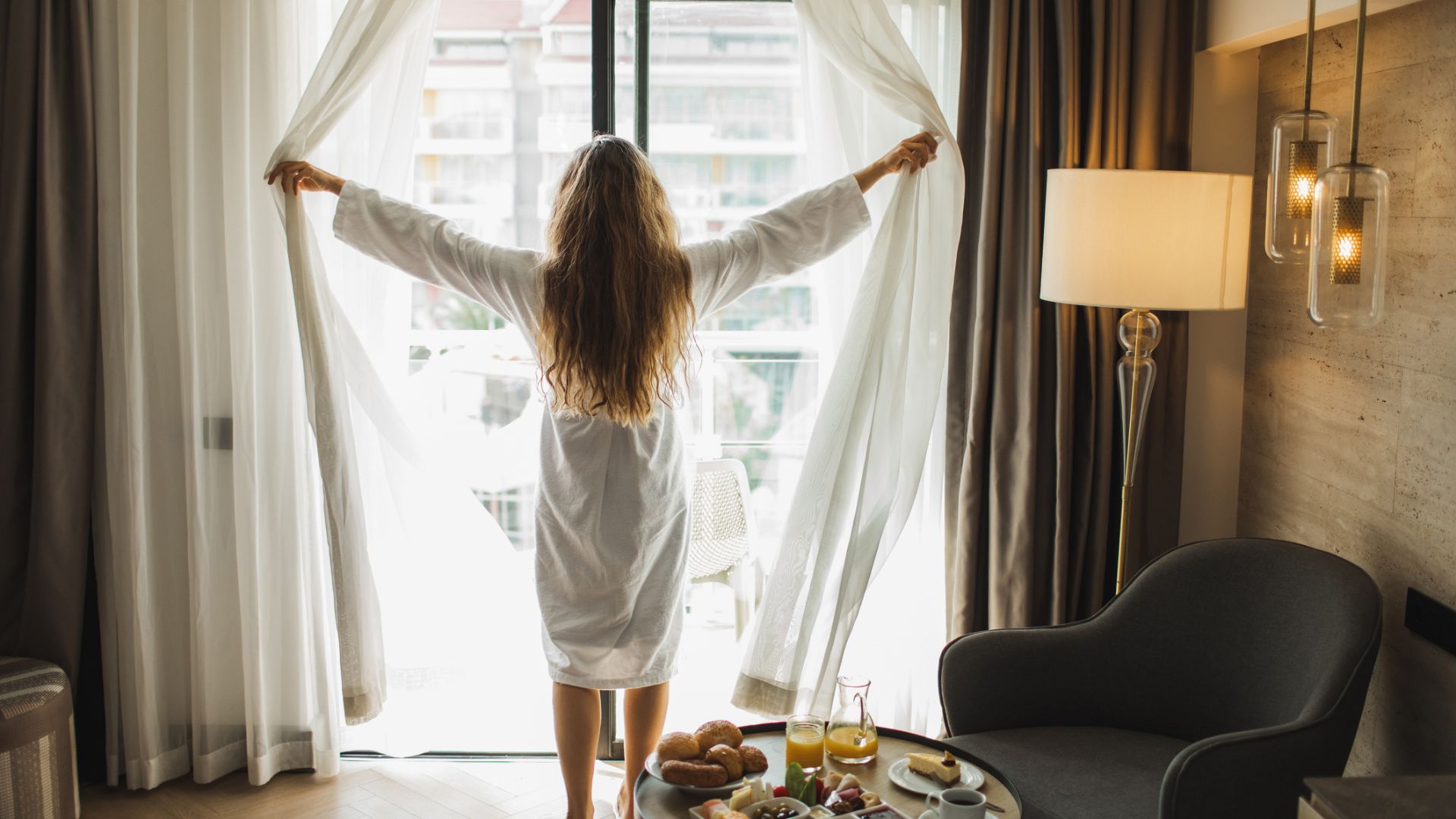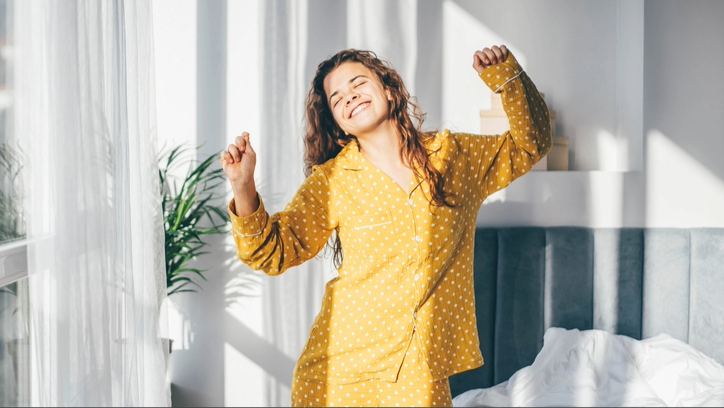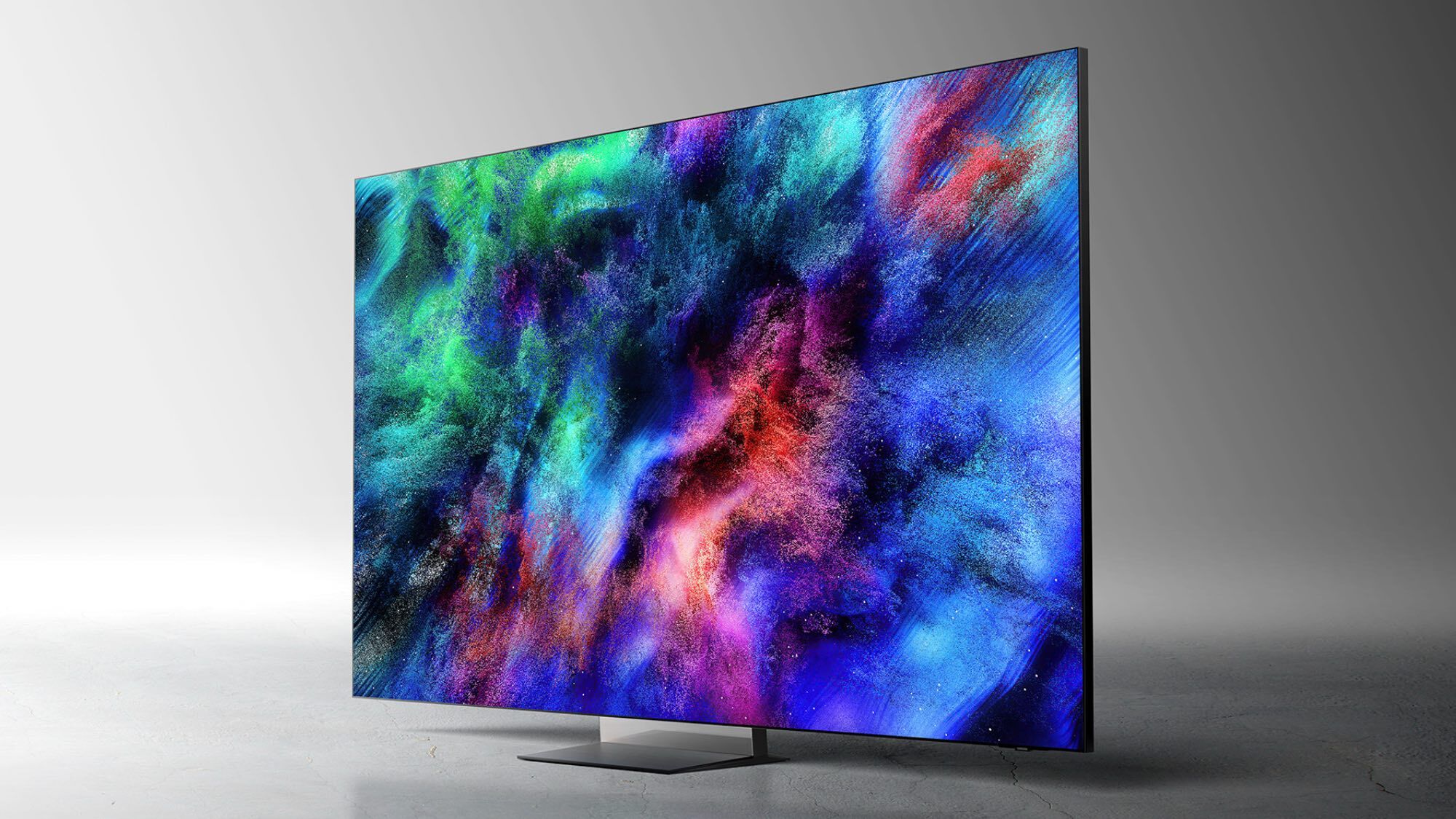This could be the reason you’re tired all the time — and it’s not lack of sleep
Fresh air means a clear mind, better sleep and more energy

A teething baby, a hectic work schedule or an active lifestyle, there are many reasons why you may legitimately feel tired all the time. But feeling fatigued even when you are resting plenty, and sleeping on the best mattress for your body, can be frustrating.
If this is you, know that you're not alone. Research published by the Center for Disease Control indicates 13.5% of adults feel very tired or exhausted most days or every day. Feeling tired all the time has in fact become so common in our modern world that medical professionals have coined a phrase for it — TATT.
But the news isn't all bleak. Wise lifestyle choices and simple switches throughout your day (sitting outside for your coffee and walking where you can) can combat incessant fatigue. As a team of sleep experts who have tested countless trending sleep hacks and spoken to several specialists about how we can improve our sleep, and one tip that remains essential is getting outdoors. Here's why.
Not getting outdoors could be causing your fatigue
Several lifestyle choices, like a poor diet, lack of exercise, excessive stress, dehydration and too much caffeine, can make you feel tired even when you’re getting 8 hours of sleep a night.
But if there’s one piece of advice we could give, it’s spend more time outside. January might be over, but the days are still cold and the evenings still dark, which means venturing outside isn't exactly inviting. Yet there are plenty of reasons why our bodies, minds, energy levels and sleep will thank us for plucking up the courage to get outdoors. In fact, the time we spend in the great outdoors can have a huge impact on our sleep.
How spending time outdoors improves sleep and reduces fatigue

1. Regulates circadian rhythm
Exposure to natural daylight helps regulate your sleep and wake hormone cycles, boosting your energy when you need it and making you feel sleepy at the right points in the day (i.e. the evening.) This helps your internal body clock get more in tune with the natural cycles of the day.
Sunlight is especially beneficial in the morning as it boosts cortisol, the hormone that helps you wake up and feel energizes. It also suppresses melatonin, which makes you feel sleepy. This means that by the time the dark evening rolls around your body knows to produce melatonin again, increasing your sleep drive to help you fall asleep faster. Therefore, you will get better quality sleep and are less likely to experience dips in energy throughout the day.
Get instant access to breaking news, the hottest reviews, great deals and helpful tips.
Some experts believe 'circadian mismatch' — when your sleep schedule isn't aligned to your circadian rhythms — might be the reason why you feel tired even after a full night's sleep.
2. Boost of vitamin D
The body naturally produces vitamin D when exposed to sunlight (there's a reason it's called the sunshine vitamin.) While many people are well versed in how vitamin D is essential for bone health, not everyone is aware of its impact on sleep and energy.
A new study found participants experiencing sleep deprivation display lower levels of vitamin D. According to this research, a vitamin D deficiency could be linked to disrupted sleep and reduced sleep duration. Therefore, not spending enough time outside can wreak havoc on your sleep and increase tiredness levels throughout the day.

3. More movement
Although it sounds counterintuitive, movement actually reduces fatigue. A 2022 study by researchers at the University of Illinois in Chicago found that, in the general population, longer sitting time was associated with a higher level of general fatigue. Spending the day cooped up indoors means you're unlikely to be moving as much as you would while getting out and about.
Additionally, other research published in the Journal of Occupational Health Psychology shows employees with sedentary jobs experience a 37% increase in insomnia symptoms. Hence, increasing your activity levels outdoors, be it fitting in a walk on your lunch break or popping out with your pup, can offset fatigue and help you fall asleep at night.
4. Natural stress relief
Placing tension on the body and weighing down the mind with worries, stress is one of the main causes of fatigue, leaving you feeling depleted. Not to mention the impact it has on your ability to fall asleep and sleep through the night.
A 2023 study by scientists at the Medical University of Vienna found that spending time outdoors is associated with better sleep, optimism, happiness and health outcomes.
Fresh air can help raise oxygen levels in your brain, which boosts serotonin levels, leading to a positive change in mood and reduction in stress. Promoting your overall wellbeing and sleep quality (stress free ZZZs are more restorative than sleep broken by an anxious mind), spending time outdoors reduces grogginess

5. Break from screens
Think about how you spend your time while indoors. Whether working at a laptop, relaxing in front of the TV or scrolling through TikTok, there is almost always a screen involved. Spending time outside in nature, or even just popping out to run errands, means you get a break from these screens and artificial light. You also get the chance to bump into people, fostering face-to-face social interactions, which can boost your energy no matter how flippant or transient they are.
Research shows even just a smile from a stranger can give you a small boost of energy because seeing someone smile can trigger the release of feel-good chemicals like dopamine and serotonin in your brain, which can positively impact your mood and overall energy level. Meanwhile, excess screen time is associated with negative effects on sleep quality and, a lot of the time, mood. Therefore, this break can help boost cognitive function and mood and reduce lethargy.

Eve is a sleep tech product tester and writer at Tom's Guide, covering everything from smart beds and sleep trackers, to sleep earbuds and sunrise alarm clocks. Eve is a PPA-accredited journalist with an MA in Magazine Journalism, and has four years’ experience writing features and news. In her role as Sleep Tech Product Tester and Writer for Tom's Guide, Eve is constantly trying out and reviewing the latest sleep products from brands such as Apple, Garmin, Whoop, Hatch, Sleep Number, Eight Sleep, and Oura. A fitness enthusiast who completed the London Marathon earlier this year, Eve loves exploring the relationship between good sleep, overall health, and physical performance, and how great sleep tech can make that relationship even better.
You must confirm your public display name before commenting
Please logout and then login again, you will then be prompted to enter your display name.
